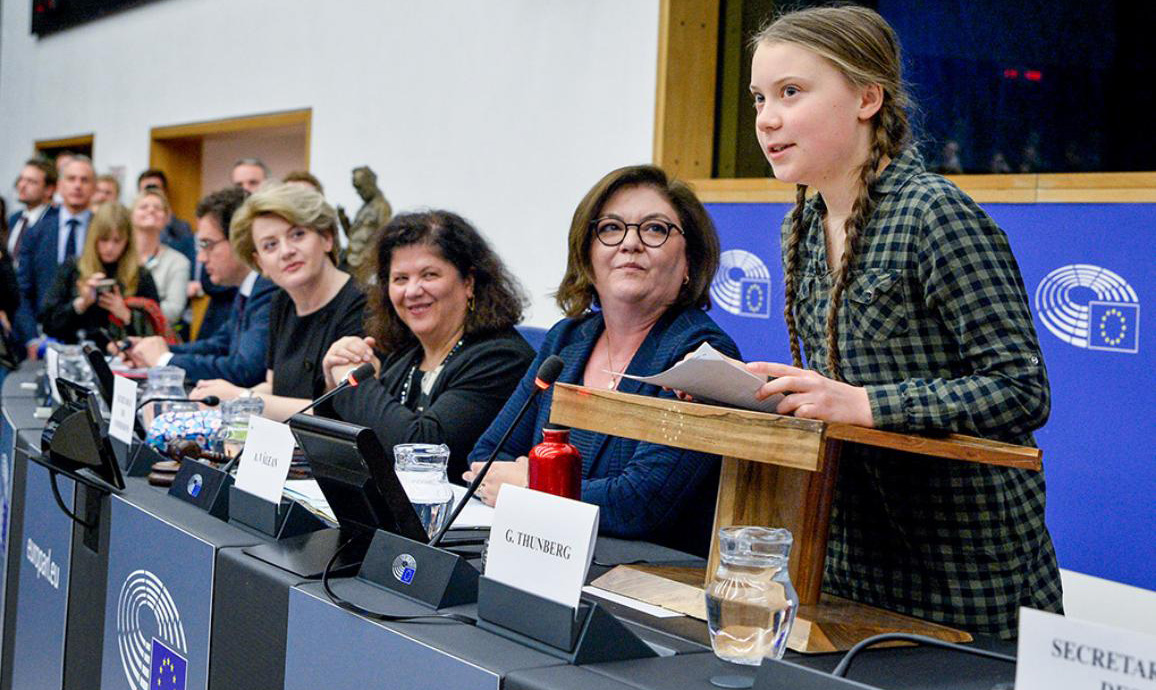Last week MPs endorsed a Labour motion to declare a formal climate and environment emergency, making the UK parliament the first in the world to do so. The Welsh and Scottish governments have both already declared a climate emergency, along with dozens of towns and cities, including Milton Keynes, Oxford, Reading, Brighton & Hove, Hastings and Oxfordshire - all Labour led or influenced.
The motion follows ten days of marches and protests by the group Extinction Rebellion, an international movement committed to bringing issues such as climate change to the fore. It also comes a matter of weeks after I listened as Greta Thunberg - Swedish school-striking climate activist and figurehead for a growing climate movement - urged MEPs to take emergency action to prevent a sixth mass extinction and days before the release of an alarming UN report that details just how rapidly that mass extinction is progressing.
This motion is a vital step in recognising the urgent need to take radical action to combat the climate crisis. The science behind the UN report and thousands of others is clear: humanity and life on Earth now face a direct existential threat, and unless we take decisive action, future generations will face utter catastrophe.
The UK is not immune to the devastating effects of climate change, and nor is South East England. Warmer summers brought on by climate change greatly increase the risk of cardiovascular or respiratory-related deaths, which scientists predict will cause more deaths in London and South East England than the rest of the country. In addition to increased average temperatures, we also face heavy rainfall and flooding, rising sea levels and more dramatic coastal erosion, as well as wildfires, droughts and extreme weather events. And as tends to be the way with these things, it is the poorest and most vulnerable in society that will suffer. Less well off communities in the UK will experience the worst effects of climate change as they are least able to bear the costs of damage to their homes and communities, or deal with food insecurity and rising living costs.
But sounding determined about climate change is one thing; taking decisive action is another. This is clearly demonstrated by the thoroughly ineffectual approach taken by the Conservatives, who in 2015 banned onshore wind projects and scrapped warm homes standards, in 2016 scrapped subsidies for solar energy, in 2017 sold off the Green Investment Bank, in 2018 forced fracking on local communities, and in 2019 refused to meet the climate strikers. Labour’s motion demonstrates that not only is it committed to tackling the climate crisis, but that it is the only party capable of securing a majority in Westminster that is.
Tackling climate change is often sold as an issue that requires individual action, where individual changes made to the way we all live can solve the problem. What we need instead is collective action that forces corporations (including the 100 companies that are responsible for 70 percent of emissions) to make fundamental changes to curb their environmental impact.
The EU provides us with the multi-government platform to effect that change to a crisis that doesn’t recognise borders. I have been directly involved with promoting a number of measures that are central to the next seven year EU budget framework, in particular the inclusion for the first time of ‘just transition’ funding to help communities adjust to a low carbon economy and to increase the proportion of funding directed to climate action.
At a national level, the climate crisis needs to be seen as Labour’s most significant challenge in government. We must increase our ambitions under the Climate Change Act in order to achieve net zero emissions before 2050, and I will continue to push for massive investment to make the UK a world leader in renewable energy; to significantly boost the electric car project and introduce the required energy infrastructure and more electric car hubs; greatly to increase the number of sustainable homes built and for the modification of existing ones; to embark on large-scale reforestation and rewilding programmes; and to make our nation’s food system more secure and sustainable.



